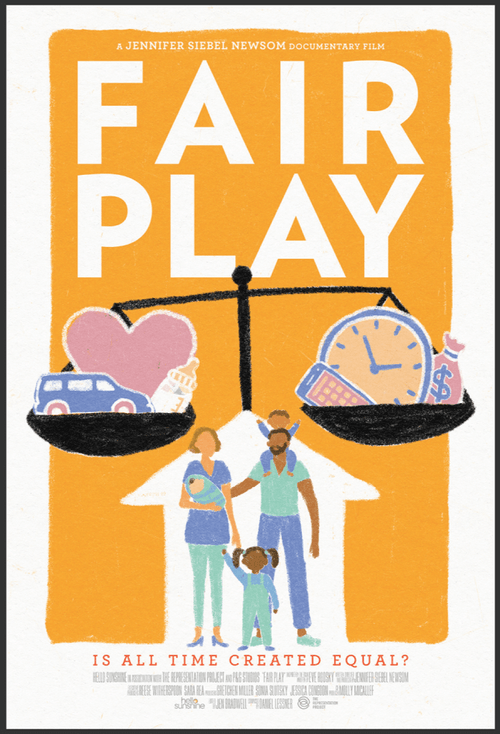Gratitude Practice: Off the Hook
It has been a rough week here at my house. My children have been waking up in the middle of the night and now they are sleep deprived, and so I am. I can’t seem to keep myself together. I fly off the handle at the smallest spat between my sons, I am impatient and yell. My oldest is holding it together pretty well (gosh, I am grateful for emotional maturity), but my youngest and I step into the ring together ready to fight – at least once a day – and it’s tiresome.
In addition to these new/old issues, the ever-present Invisible Load and intense cultural expectations of parenting have got me burned out. Intensive Parenting is what sociologists and psychologists are now calling overly involved parenting, and they have declared it to be the most widely accepted parenting style in the US.
And so while I don’t want to paint this new style as a bad thing (there are many aspects of this type of parenting that are really, really good for our kids), I think we should get to know it a little better, ok? I’ll lay out the “Intensive Parenting” pillars for you, and you can tell me which ones feel familiar to you and which may make you say ‘ick’.
So the five basic beliefs included in the Intensive Parenting style are:
1) Parenting is best done by mothers.
2) Parents should seek out expert support for proper child rearing
3) It is naturally time intensive to care for a child properly
4) It is expensive to provide the things the child will need for proper development
5) Children are inherently good, innocent, and sacred.
And in addition to those basics – Intensive Parenting’s hypothesis seems attractive. The thesis goes: (if practiced properly) “good” parenting should result in “good” kids (and healthy, well-adjusted adults even), and therefore a parent’s role and the family environment is the most important factor in the development of children under the age of 12 years old.
How does this all work? Well, the tools of Intensive Parenting boil down to many things we talk about on this blog:
Interested in what to do instead of Intensive Parenting? Watch this video.
parental modeling,
parental support,
encouragement and oversight
So what do you think? Maybe the vibe feels good or normal. For me, “children are inherently good " feels like a no-brainer. But then, I have a knee-jerk reaction to mothers only being good parents because fathers are great parents too. The theory and style’s name throws me off too: “Intensive Parenting” — like our whole focus needs to be on parenting and doing it “right” and “well” and, dare I say it even…perfectly?
This parenting style leaves out how influential culture and the media are, that peers are important to children way before they turn 12, and non-shared environments like school and daycare and the relationships our children form there factor heavily into the development of a child — not to mention the genetic code they inherit from our extended families and cultures of origin.
Of course, how we treat our children matters. What boundaries we lay out, environments we offer, and the battles we choose to prioritize — these things matter. But when you place the entire burden of a healthy and well-child on a single parent i.e., the primary caregiver - you end up in the mess we are in right now; burnout, anxiety, depression and despair.
Let’s look at it from our government’s point of view: If it’s all the fault of one parent, then policies don’t need to support parents because it’s not the fault of the culture – and with mothers who are burned out, well “they are lazy and should do better”.
This is a problem for primary caregivers. This is a problem mainly for women.
I am not going to solve this in one blog post. However, I am going to share how I deal with it all, and how I have learned to lighten up my load.
The Practice:
When I realized that I could no longer parent with the intensity required – I knew there would be consequences. I had to figure out how to get by in a world that was determined to call me a “bad mother” for not choosing that level of involvement in my kids’ lives. And so I accepted that part of this new learning process of parenting differently was to figure sh$t out and make mistakes along the way – and I adopted the mantra of wanting to be an Imperfect Parent.
Then I started to look at what made me happy and unhappy when interacting with my kids. I hated decorating my house for the holidays, so I dialed it back. I didn’t like fighting with my 5-year-old while teaching him how to tie his shoes, so I bought slip-ons. Learning to ride a bike was a nightmare, so we stopped doing that. When I sat down at the end of the day and felt wreaked because I hadn’t caught my breath, we cut out all after-school and weekend enrichment classes.
And things let up. They really did. And I’m grateful for that.
But there was a catch, and it had to do with an unconscious bias I had – remember the biggest thing on that list of intense parenting values that I did not agree with? That mothers best do parenting?
Well… under my own nose, I had been doing just that. I would go grocery shopping by myself and feel guilty for browsing too long, or I would go to coffee with a friend and bring my child along. It felt better knowing that I was handling my kids and knew what was happening with them. But in a way, I was saying, without saying it, that I knew best – and by doing this, by isolating my partner from any of the “hard” parts of parenting, I was robbing him of the chance to grow. To learn on the job and to make mistakes.
And I was saying Mothers know best.
We make an already hard job much harder by not sharing the load. And I know that sharing the load is a hard thing to do. I hate making lists for my partner, it’s so annoying. And it was for many years. But he makes the lists, too, now. Because I let him fall. And because I decided that the mom doesn’t have to do it all.
And to get to a place where you can start to share the load takes this week’s practice:
Take one night a week completely off.
Now you don’t need to fill it with gratitude - but this practice will result in immense amounts of gratitude that you will feel. Of course, with all new things, at first, it won't be easy, but in time I promise you it will be the first thing on your gratitude list each week.
This is how it works:
Sit down with your partner and find one night a week that you can consistently leave the house before or after dinner and definitely before the bedtime routine. Obviously, if your baby won’t take a bottle, then leave after the feed.
Find a weekly yoga class you can attend or a women’s group to join—or go to a local bookstore and find a seat in the back. If you can’t leave the house, you will need a pair of noise-canceling headphones, earplugs, and a lock on your bedroom door, or sit in your car in the garage - find a way to be completely gone.
And once you are gone, you are gone. And for the next 2 - 3 hours, it’s your chance to be you. Read that steamy romance or call a friend to talk. Take a walk. Whatever you do, it should be free from the demands of anyone or anything. No commitments to meeting your mom if that feels like a chore, no dog to walk and pick up poop after, no people to ask to do you anything at all.
Depending on your partner’s level of experience, it will be rocky (or easy) to get started but stick with the same night a week for your kid’s sake.
“Mommy goes out to yoga every Monday. I will tuck you in on Tuesday, Wednesday, Thursday, and Friday…etc. But on Monday, Daddy gets to make dinner and tuck you in.”
We need this time, Mama. Now that I have been doing this for many years, I have increased it to two nights. Whether or not you subscribe to all of the demands of Intensive parenting, cultural pressure is still real, and we all must find ways of dealing. Being there for your child on a consistently loving basis is important. Connecting and caring about their development and education is important. And when you provide the extra things you never had growing up, that feels really good too. But the sacrifice it takes on our mental health and relationships with our partners is rough — like really rough people.
And obviously, I know one night a week is not enough — it’s not even close to enough — but if you are in a two-person relationship, it’s something doable that you have at your disposal right now - and it can even be completely free.
And I want you to savor this time off, too, before, during, and after. If you want to learn more about savoring, check out this practice here, and of course, you can take a journal with you and make your gratitude list every week during your night. It’s up to you to find a way to make it work. No matter when I make my list, morning, night, or in between, I am forever grateful to myself for having the tough conversation with my partner, and for remembering that just because I am the mother doesn’t mean I am the only and best caregiver for my kids. I certainly don’t need to do it all or should. And by stepping away even for just one night, I can remind myself of just how Good AF of a MOM I am. - Stef
Disclaimer:
I want to clarify that the conversation with your partner can feel daunting, especially if you want to do it right without any screaming lol. I didn’t ask for a weekend day to sleep in until our oldest was around six - so I get it. And it’s not easy. But the payoff has been huge. And every time I have a tough conversation with my partner asking for things I need, it leads to good things for me and him and our kids because they get to see how a father can be involved, competent, and part of the team. I do not believe that parents are the single most important factors (instead, I believe we are just one of the factors, watch the video at the top of the post for more on that!) in whether our children will develop into amazing and healthy, and well-rounded people – but a functioning household in which both caregivers can get the rest they need and where cultural expectations are examined and even said NO to is a great place to start. If you are ready you could start by watching this film together.











